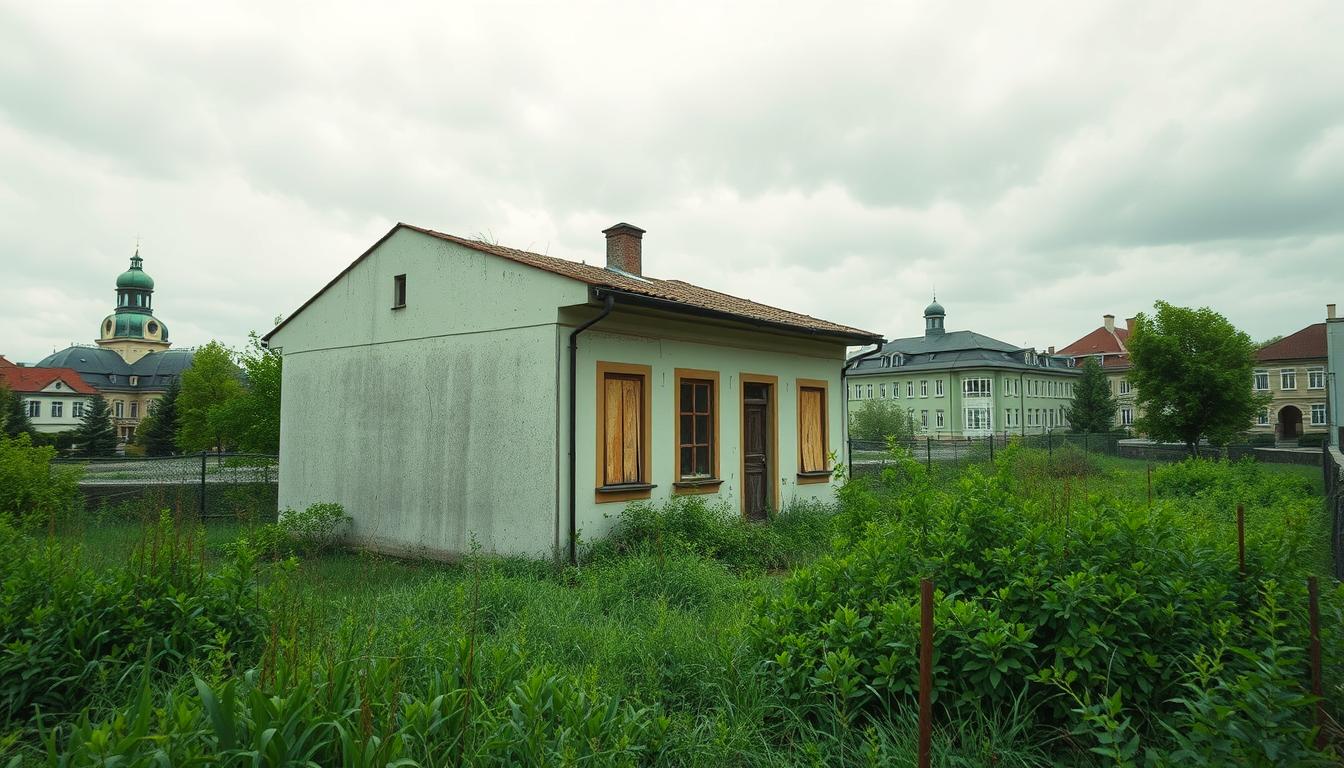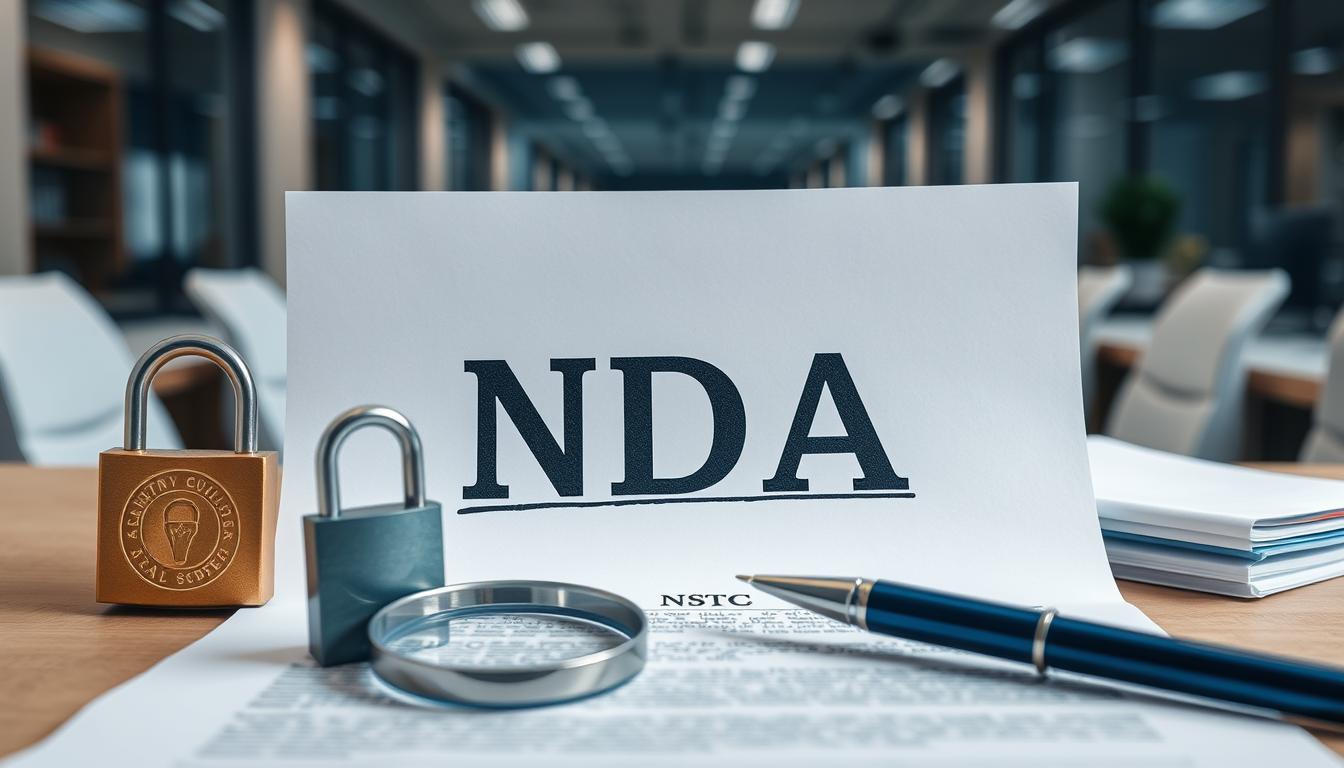Consumer Protection in Romania: EU Rights Under Romanian Law
Consumer Protection Law in Romania: Key Insights and Regulations 2024
Ever wondered how your rights as a consumer are protected in Romania?
This includes both local and EU laws.
Consumer protection in Romania is linked to EU rights, aiming for a fair market for everyone.
It’s important to know your rights in the Romanian market, shaped by laws that follow EU standards.
This section will show how Romanian law uses EU consumer rights to protect you.
We’ll look at the history and growth of consumer protection in Romania.
This will highlight how it affects your rights as a consumer in the country.
Key Takeaways
- Consumer protection in Romania is rooted in EU consumer rights legislation.
- Law no. 193/2000 addresses unfair terms in consumer contracts.
- The National Authority for Consumer Protection (ANPC) enforces consumer rights.
- Romanian laws ensure prompt resolution of consumer complaints within a 30-day frame.
- Specific regulations target misleading advertising practices under Law no. 158/2008.
- Consumer protections extend to diverse sectors, including finance and agriculture.
- Statutory guarantees are implemented through Government Emergency Ordinance no. 140/2021.
Introduction to Consumer Protection in Romania
Consumer protection in Romania is shaped by EU directives.
It focuses on consumer rights in Romania to protect consumers in different transactions.
The Consumer Protection Law No. 21/1992 is the base, adapting to market changes.
A consumer in Romania is someone buying goods or services for personal use, not for business.
They have rights, like knowing product details and getting compensation for damages.
Clear rules govern trades, making sure everything is fair and open.
Unfair terms in contracts can threaten consumer protection.
Laws fight these issues, making the market fairer.
Our team of Romanian lawyers can help consumers with legal advice on protection and rights.
Keeping strong consumer protection is key for a better life in Romania.
If consumer rights are broken, it affects people a lot.
They must report to the right authorities.
Breaking price rules can lead to big fines, showing the government’s strong support for consumer protection laws in Romania and your rights.
Directive (EU) 2019/2161 has brought big changes to consumer rights in Romania.
It makes online marketplaces more transparent.
Now, traders must show clear price details, helping consumers make better choices.
As more people learn about the Romanian consumer rights act, getting legal advice is more important.
Both consumers and traders should get help to understand new rules and follow consumer protection laws in Romania.
The Role of EU Law in Romanian Consumer Protection
Since 1991, EU laws have greatly impacted Romanian consumer rights.
The Romanian government has adopted many EU consumer protection laws.
This ensures that local rules match the European Union’s goals.
Now, policies aim to boost consumer rights across Europe.
EU directives have brought many benefits for consumers in Romania.
The country set up the Consumer Affairs Authority to handle complaints and enforce standards.
This body makes companies responsible for faulty products, not consumers.
With more people in Romania having money, they’re learning about their consumer rights.
Class actions were rare before, but new laws are changing that.
Law No 414/2023 introduced actions for groups, marking a big change in Romanian law.
This change matches Directive 2020/1828, which aims for a common approach to group actions in Europe.
Now, qualified groups can represent consumers in court.
This system is similar to the US class action model, allowing courts to check claims.
As people learn more about their rights, we’ll see more public claims.
Retailers need to be aware of this trend and think about insurance.
The new rules offer both legal steps and ways to fix problems, showing a big step forward in Romania.
Basic Rights of Consumers in Romania
Knowing your basic rights in Romania protects you when you shop.
This part talks about your right to get important info and the quality of what you buy.
Knowing these rights also makes sure companies follow the law and respect your rights.
Right to Basic Information
You have the right to clear and full info about what you buy.
This means you should get correct details on prices and how things work.
If you’re not getting the info you need, talking to a lawyer in Romania who knows about consumer rights might help.
Right to Safety and Quality
Your safety and getting quality products are top priorities.
Everything sold must be safe and up to standard.
If not, you can tell the authorities.
Following safety rules keeps you and others safe.
| Right | Description | Legal Reference |
|---|---|---|
| Right to Basic Information | Consumers should receive accurate and clear information about products prior to purchase. | Emergency Ordinance No 93/2012 |
| Right to Safety | All products must adhere to safety standards to prevent harm to consumers. | Law No 113/2013 |
| Right to Quality | Consumers are entitled to products that meet quality standards as advertised. | Emergency Ordinance No 93/2012 |
Knowing your rights in Romania helps you make smart choices and keep businesses in check.
It’s all about making sure everyone follows the rules and values your rights.
This makes shopping better for everyone.
Key Consumer Protection Laws in Romania
Romania has made big changes in consumer protection to match European standards.
Consumer protection laws are key in setting consumer rights and business duties.
Laws like Government Ordinance no. 21/1992 and Law no. 363/2007 protect consumer rights.
Government Ordinance no. 21/1992 sets out consumer rights, like keeping them safe from health risks.
It requires traders to give clear information, making transactions open.
This law is a base for more improvements in Romanian consumer rights legislation.
Law no. 363/2007 fights against unfair business practices.
It stops misleading ads and sets fair trade rules.
This law makes sure trading is fair and open for everyone.
Consumer rights laws also cover product guarantees and liabilities.
The Producers’ Liability Law under Law No. 240/2004 lets consumers get compensation for product defects.
This makes producers more responsible and builds trust with consumers.
The Romanian Civil Code is also key in consumer protection laws.
It protects consumers with quality guarantees and shields them from bad contract terms.
This shows how important it is to protect consumers in today’s market.
Institutions Responsible for Consumer Protection
In Romania, consumer protection relies on key institutions.
These groups make sure laws are followed and consumer rights are respected.
Knowing about these groups is key for understanding your rights and duties as a consumer.
The main groups looking out for consumers in Romania are the Ministry of the Economy, Energy and the Business Environment and the National Authority for Consumer Protection (ANPC).
They are crucial in making and enforcing consumer protection laws.
Ministry of the Economy, Energy and the Business Environment
The Ministry of the Economy, Energy and the Business Environment is vital for consumer protection.
It helps put laws into action that protect consumers.
The Ministry works with others to make sure everything is transparent and follows the law.
It aims to support economic activities that respect consumer rights, making the market safer and fairer.
National Authority for Consumer Protection (ANPC)
The National Authority for Consumer Protection is the main agency that checks and enforces consumer protection laws.
ANPC looks into consumer complaints to make sure their rights are protected in areas like cars, electronics, and clothes.
They check if products meet safety standards and help consumers get accurate info.
Their work includes:
- Conducting inspections and investigations in markets
- Facilitating consumer education programs
- Providing a platform for consumers to express complaints and seek remedies
- Implementing safety standards for products
- Enforcing regulations against abusive trade practices
The National Authority for Consumer Protection boosts consumer trust and market honesty in Romania.
They do this by defending consumer rights and making sure everyone follows the rules.
| Institution | Role | Key Responsibilities |
|---|---|---|
| Ministry of the Economy, Energy and the Business Environment | Policy Driver | Develop consumer protection policies and collaborate with stakeholders |
| National Authority for Consumer Protection (ANPC) | Regulatory Agency | Monitor compliance, handle consumer complaints, and enforce safety standards |
Consumer Rights Legislation Under EU Directives
In Romania, laws protect consumers by following EU rules.
These laws cover contracts and how businesses act.
Laws like Government Emergency Ordinance no. 34/2014 and Law no. 363/2007 show Romania’s commitment to consumer rights.
Government Emergency Ordinance no. 34/2014
This law helps protect consumers in online and remote sales.
Companies must give clear information before making deals.
Consumers can cancel online purchases within 14 days without giving a reason.
Law no. 363/2007 on Unfair Business Practices
Law no. 363/2007 fights against unfair business acts.
It follows the EU’s Unfair Commercial Practices Directive.
It ensures fair marketing and bans misleading ads and unfair contract terms.
These laws make the market fair and protect consumers from being taken advantage of.
| Legislation | Key Provisions |
|---|---|
| Government Emergency Ordinance no. 34/2014 | Protection in distance contracts, 14-day cooling-off period, transparency in pre-contractual information. |
| Law no. 363/2007 | Regulation against unfair business practices, ethical marketing, prohibition of misleading advertisements. |
| EU Directives in Romania | Minimum 2-year guarantee on new and second-hand goods, rights to repairs and refunds for faulty goods. |
These laws make Romania follow EU rules and protect consumers better.
They let consumers shop safely, knowing they are protected from unfair acts.
The Role of Consumer Rights Organizations in Romania
Consumer rights groups in Romania are key to protecting your rights.
They work hard to make people aware of laws and places that help you.
Sadly, many Romanians don’t know about their legal protections, which can make them unhappy and less safe.
These groups teach people about their rights and push for fair markets.
They give important info and help when companies might take advantage of you.
This includes selling old or harmful products, lying in ads, and not showing prices and product details.
Let’s look at how these groups make a difference.
The table below shows where people don’t follow consumer rights rules.
It talks about faulty products, getting info, shopping access, and getting legal help.
| Economic Sector | Level of Non-Compliance |
|---|---|
| New Motor Vehicles | High |
| Non-Alcoholic Beverages | Moderate |
| Household Electrical Equipment | High |
| Meat Products | Moderate |
| Entertainment and Leisure Goods | Low |
| Clothing | Moderate |
This data shows why consumer rights groups in Romania are so important.
They help educate people, which can stop sellers from taking advantage of them.
These groups fight for better rights and make shopping better for everyone.
Consumer Rights Violations and Remedies
In Romania, consumer rights are often broken in many ways.
This affects people in different areas.
Issues like false ads, unfair contracts, and bad products are common.
Knowing about these problems helps you fight back and get your rights.
Common Consumer Rights Violations in Romania
There are several ongoing issues with consumer rights in Romania.
Some of the main problems are:
- Misleading Advertising: Companies sometimes lie about what they’re selling or how much it costs.
- Unfair Contract Terms: Some contracts have rules that help the company more than the consumer.
- Defective Goods: Many people get products that are not safe or not what they were promised.
The Consumer Protection Act is here to help you.
It makes it easier to complain and get help from companies that break the rules.
This law lets you sue companies that don’t respect your rights, helping you get back what you lost.
Here’s a table that shows the main violations and what you can do about them:
| Consumer Rights Violation | Typical Remedies |
|---|---|
| Misleading Advertising | Refunds or replacements, legal action for deceptive practices |
| Unfair Contract Terms | Negotiations for contract amendments, legal guidance, or complaints to regulatory bodies |
| Defective Goods | Full refunds, exchange options, or repair services |
More people are filing complaints, especially about online sales.
This shows how important it is to know your rights.
By being informed, you can help make a stronger consumer culture.
This leads to better protection for you and others.
How to File Consumer Rights Complaints in Romania
Filing consumer rights complaints in Romania is easy if you know the right steps.
If you face problems with products or services, it’s key to understand how to complain.
This knowledge helps you stand up for your rights.
Steps for Filing a Complaint
Here are the steps to make sure your complaint gets looked at quickly:
- Gather Documentation: Collect important documents like receipts, contracts, and photos of the problem. This proof is key when you complain in Romania.
- Identify the Right Authority: Figure out if you should send your complaint to the ANPC or a consumer group. This depends on your specific issue.
- Submit Your Complaint: Write a clear complaint letter that explains the problem. Include your details, the store’s info, and your evidence. You can send your complaint to the ANPC by mail or on their website.
- Follow Up: After you send your complaint, make sure to check back with the authority. Keeping an eye on your complaint helps get it solved.
- Explore Alternative Dispute Resolution: Think about using European Consumer Centers (ECC-net) for issues with sellers from other EU countries. They can help settle disputes, making it easier to fix the problem.
Knowing these steps is crucial for dealing with consumer rights complaints in Romania.
Working with the right authorities can lead to good outcomes, protecting your consumer rights.
| Step | Description |
|---|---|
| 1 | Gather all relevant documents and evidence. |
| 2 | Identify the correct authority to submit your complaint. |
| 3 | Compose and submit a detailed complaint letter. |
| 4 | Follow up on the status of your complaint. |
| 5 | Consider alternative dispute resolution options if needed. |
Consumer Education and Advocacy in Romania
Consumer education in Romania is key to empowering people to know their rights and duties.
The government and NGOs work together to teach people about their consumer rights.
They offer programs that help people understand legal protections and make smart choices.
Groups like Info Cons Romania share important info on consumer rights.
This helps people make better choices in the market.
Since 2014, the Consumer Rights Awareness Campaign has been teaching people about their rights in Romania and the EU.
These campaigns show a strong effort to improve how well people understand consumer rights.
They reach out to many groups, including schools.
Cases from the CJEU, like CJEU Case C-598/21, help solve consumer disputes.
This shows how advocacy for consumer rights works across the EU.
Countries like Slovakia and Spain are part of big legal fights over consumer rights.
This shows how complex these issues are.
People are urged to use the resources available to them.
This helps create a place where they can stand up for their rights.
| Year | Campaign Launch Countries | Significant Events |
|---|---|---|
| 2014 | Romania, Greece, Spain | Initial consumer rights awareness campaigns initiated |
| 2015 | Latvia, Czech Republic, Lithuania, Estonia, Slovakia, Hungary, Slovenia | Campaign extended to additional EU Member States |
| 2016 | All previously involved countries | Two-week information campaign on Facebook for European Consumer Day |
Conclusion
In this overview, we’ve looked at how Romania protects your rights as a consumer.
The National Authority for Consumer Protection (ANPC) is key in making sure you’re safe from unfair business practices.
They work hard to keep the market fair.
Groups like nine non-governmental organizations and ten media outlets help spread the word about your rights.
They teach people about consumer protection and how to stand up for themselves.
Even though there’s been progress, there’s still work to do.
Romania has laws and groups that help you solve problems and get fair treatment.
You have the right to make choices, know what you’re buying, and get help if things go wrong.
To wrap up, it’s important to see how everyone works together to protect consumers.
With more support for strong laws and teaching people about their rights, Romania can keep improving.
This will make the market fairer for everyone.
FAQ
What are the basic rights of consumers in Romania?
In Romania, consumers have rights like getting information, safe products, and the right to cancel purchases.
These rights help consumers make smart choices when buying things.
How do EU consumer rights influence Romanian laws?
EU laws on consumer protection affect Romania’s consumer rights.
Romania follows EU directives to protect consumers like those in other EU countries.
What institutions are responsible for enforcing consumer protection in Romania?
The Ministry of the Economy, Energy and the Business Environment leads in consumer protection policy.
The National Authority for Consumer Protection (ANPC) handles complaints and ensures consumer rights are respected.
How can I file a complaint regarding consumer rights violations in Romania?
Start by collecting your evidence and send it to the ANPC.
You can also try to solve the issue without going to court, giving you more ways to fix the problem.
What are some common consumer rights violations in Romania?
Often, consumers face false ads, unfair contracts, and faulty products.
They can use laws and consumer groups to fight these problems.
What consumer rights organizations operate in Romania?
Many groups in Romania work for consumer rights.
They help with complaints, spread information, and push for better laws.
These groups are key in teaching consumers about their rights.
What consumer education initiatives are available in Romania?
Romania has programs to teach people about consumer rights and duties.
These are run by the government, NGOs, and schools.
They help consumers make better choices.







